QuestionHi, i recently adopted a 1.5 year old male miniature Australian shepared. When I met him alone in the pound he was quite loving. I returned with my wife and other dog and got a second warm reception. when we got him home he will not have anything to do with me. he clings to my wife. If i enter the room he runs away, peers back in and runs away again. On a lease or in close quarters such as a car, he is better. i tried feeding him or giving him treats but he will not stay in the room with me. How can I make him stop fearing me?
AnswerHi Frank,
You've only recently adopted this dog. To the dog, he's suddenly been whisked to another unfamiliar situation, with unfamiliar people, as well as adapting to your other unfamiliar dog. These are very unnerving and stressful situations for an adult dog to adapt to. It's not unrealistic to allow a good two months before a new dog will feel more at home, in his new home.
A dog that has been kept confined and has limited opportunity to socialize with people may remain fearful for some time.
Shyness in adult dogs requires a lot of patience to overcome. Gentle coaxing and verbal praise are the keys to overcoming his fears.
When a dog reacts fearfully to a man, people tend to jump to the conclusion that a man has abused the dog in the past. Possibly that is the case, but often it's a problem of lack of early social experience with men. It's possible that your dog's previous owner was a woman, which would explain his bond with your wife. Men, women, children, people wearing big hats, people in Halloween costumes and a wide variety of other human presentations can spook dogs who have not experienced that "style" of person before.
Of course, if there has been actual abuse or something has happened to frighten the dog in conjunction with that type of human (a man), the dog's fears will go deeper. Either way, the treatment is basically the same. Don't force yourself on the dog. In spite of your hurt feelings, this process needs to be taken slowly, allowing the dog to warm up to you at his own pace.
With a lot of love and patience this dog will warm up to you. Don't try to force the dog to come to you, or stay near you. Offer him tasty treats to entice him over. Offer plenty of gentle praise when he comes to you, and allow him go whenever he wants to leave your side. He will learn that good things come from you, and in time he'll stay longer and longer at your side. Don't feel like you have to pet him when he's near you. In the beginning, just having him stay near you, by his own free will will be a sign things are changing.
Incentives to make him come to you include: food treats the dog likes, food treats the dog goes crazy for, feeding him regular meals, any games with you the dog enjoys playing, special toys that you hand him, privileges such as a walk or ride in the car, and anything else THIS dog likes.
Reward the dog at times the dog is showing confidence. Avoid rewarding fearfulness. Certainly don't punish the dog for acting fearful! Just give the rewards at the moments when you see in your dog the state of mind that is your goal.
Don't put your face directly in front of the dog's face or look into his eyes, humans can see this as affection while dogs can see it as aggression. Speak softly to him, without eye contact.
Your veterinarian, friends, or a boarding kennel you might use can tell you about dog-training/obedience classes in your area. It is important that you go with the dog to the classes with the dog, and not your wife. Such classes would be better than a personal trainer because you wish him to bond to you and not someone else. Classes will help the dog see you as a pack leader.
I hope I've been a help.
Best of luck,
Patti

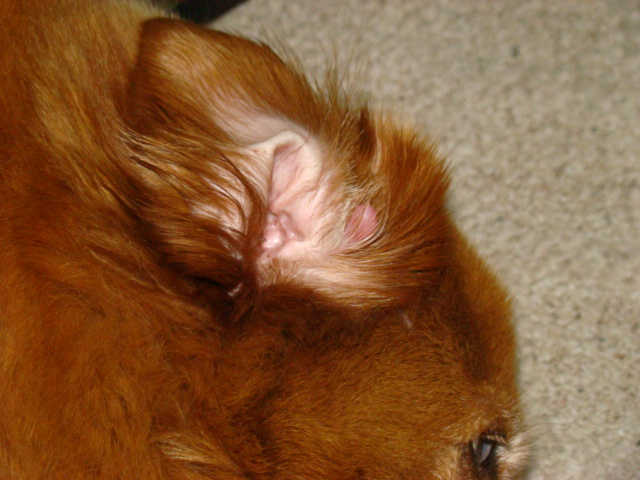 Ear Care
Question
Erins Ear 2
I had my dog groomed two days ago
Ear Care
Question
Erins Ear 2
I had my dog groomed two days ago
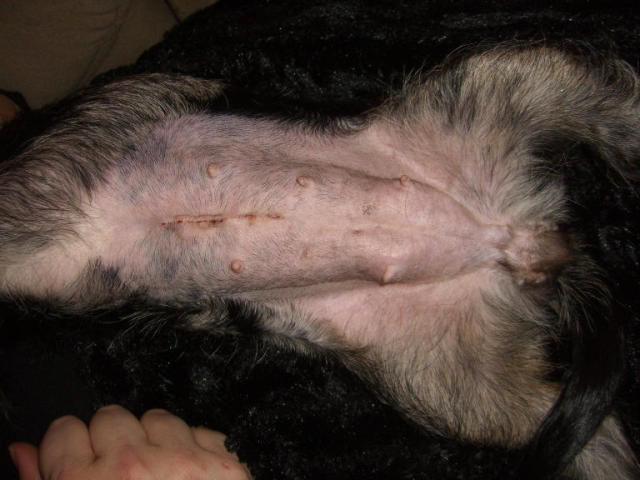 Dachshund spay - swollen mammaries
Question
Lilly
Hi Patti,
We took our 10 month old mini
Dachshund spay - swollen mammaries
Question
Lilly
Hi Patti,
We took our 10 month old mini
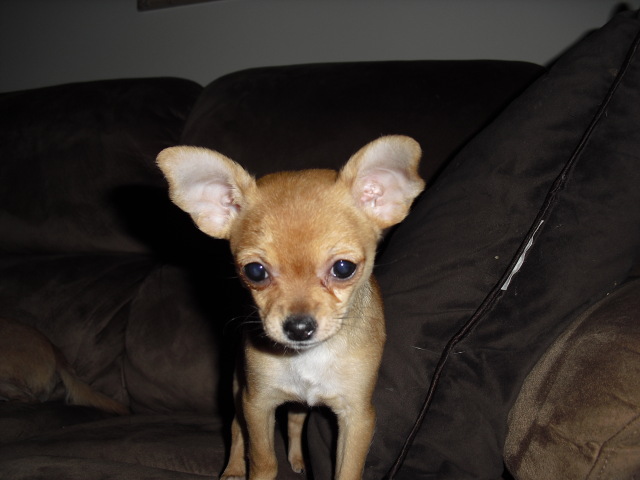 puppy chihuahua biting owner
Question
Cassey
Hello. I have a 6 month old femal
puppy chihuahua biting owner
Question
Cassey
Hello. I have a 6 month old femal
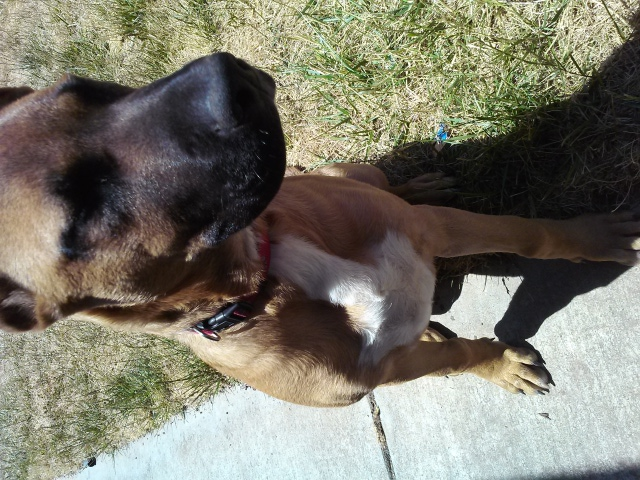 dog breed unknown
Question
dog breed unknown dog breed unknown &nbs
dog breed unknown
Question
dog breed unknown dog breed unknown &nbs
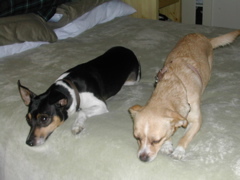 Vicious fighting between two females
Question
Alice and Julia
I have two female rescue dogs
Vicious fighting between two females
Question
Alice and Julia
I have two female rescue dogs